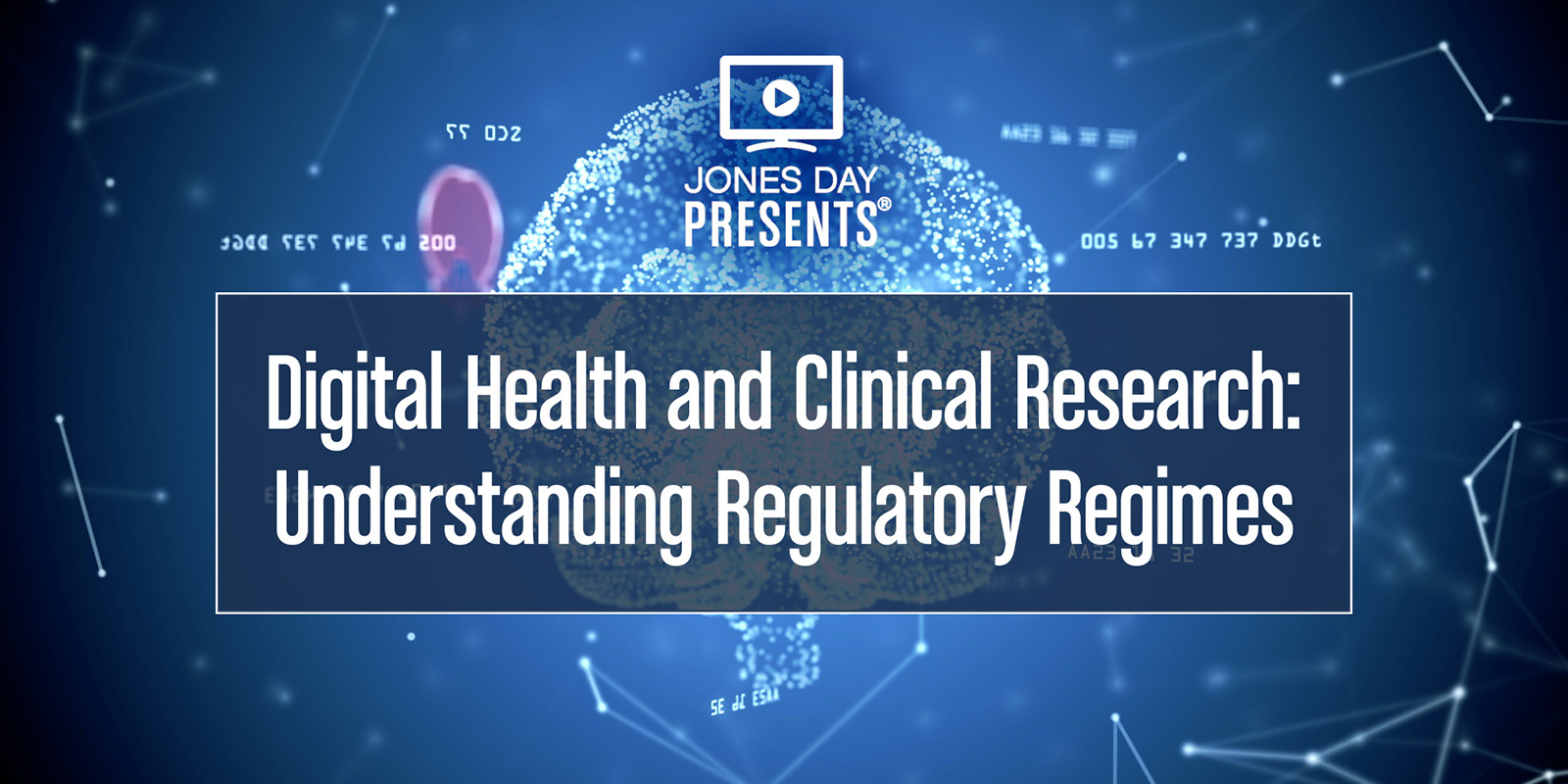
JONES DAY PRESENTS® Digital Health and Clinical Research: Understanding Regulatory Regimes
Jones Day partner Maureen Bennett talks about how advancements in digital technology and their clinical trial applications have introduced additional regulatory regimes in the United States and the European Union, and describes the differences between the U.S. and EU models. Maureen also discusses the new clinical trial regulations expected from the U.S. Food and Drug Administration in the fall of 2020.
Read the full transcript below:
Maureen Bennett:
One of the things that's very interesting about the application of digital to the clinical research area, is that it's introducing new regulatory authorities into the process. Traditionally, the FDA in the US has been the primary source of regulation. But because through some of the means of telemedicine and some of the delivery of clinical trial procedures in a patient's home, we're seeing, for example, a number of virtual clinical trials, decentralized trials, that introduces a tremendous amount of state regulation. For example, in the telemedicine area, if an investigator in a clinical trial is going to be communicating with the subject in the trial, in addition to federal regulations we now have to consider the extent to which that interaction between the investigator and the subject that crosses state lines is in compliant with all of the necessary state regulation. Similarly, we're also finding that there will be state regulation in the privacy realm that may sit on top of HIPAA and create another layer of regulation.
Maureen Bennett:
The FDA traditionally has been a little bit more robust in its guidance that it provides industry. In 2016, right at the end of the Obama administration there was a law passed the 21st Century Cures Act, and that did a lot of different things. But one of the things that it's really done is supported the FDA's support of digital health. And so there are a number of guidance documents that have been issued, and that will be issued that will address novel ways of utilizing technology, adaptive protocols, use of surrogate end points, things that will allow companies to be more nimble in how they do development. In the EU there is a little bit less in terms of that kind of specific guidance. And there are some more challenges in that the data privacy regime is much, much more stringent. The GDPR is a whole different animal and so in some cases, we find that some of the uses of data that are permissible here will not be permissible outside the US. And there are more countries outside the US that tend to follow the EU model as opposed to the US. So I think that in general, the digital means are being adopted elsewhere, but I think there's a higher level of sophistication that's needed in the data privacy area outside the US at this time.
Maureen Bennett:
The FDA is due to issue some new regulations currently scheduled for the fall of 2020 that are going to address the means by which clinical trials are regulated in the various stakeholders. We don't know exactly what to predict, but I'm personally very interested in seeing what the FDA has to say because I suspect that there will be further discussion of the more modern way of conducting trials, including some of the clinical trial protocols that occur at homes or that involve technology developers, some newer players on the scene. So if the FDA does provide that kind of guidance, I think it'll go a long way to encouraging others to get into the business, because there will be a little bit more certainty. But another thing that is not going to stop, even if the regulation is not necessarily caught up, is that there are more and more technology developers, app developers for example, that may have never been in healthcare until very recently. That are now deciding that, hey we see the crossover, we see a way in which our technology can be used to help cure a disease, diagnose a disease, to help transmit data more nimbly between healthcare professionals and pharmaceutical companies. To help create engagement between patients and pharmaceutical companies. So all of that is very much still a live area of development.

